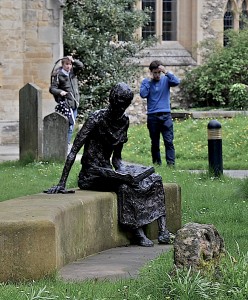The economist Diane Coyle has an interesting article on the need to reform the way undergraduate economics is taught. This is a theme that she has been writing about ever since the 2008 crash. In her article she points to some cracks that are appearing in the hitherto impenetrable facade of the profession’s establishment — as evidenced by some interesting new initiatives by university teachers. Wendy Carlin’s intriguing project, for example, carries the subtitle: “teaching economics as if the last three decades had happened”.
“Even a relatively minimal interpretation implies a substantial amount of change in many undergraduate economics programmes,” writes Coyle.
In many universities, the core curriculum settled into a predictable rut. This interacted with two factors: (i) incentives for academic research to focus on technical increments to knowledge – contributions aimed solely at professional peers, and (ii) rising teaching loads and student numbers stemming from pressures on university finances.
Despite the great interest in reform among economists teaching undergraduate courses, change will take some time as these various barriers are overcome.
There is probably the widest agreement about changes such as:
Re-introducing elements of economic history into core modules;
* Incorporating some issues on the frontiers of research into undergraduate teaching;
* Encouraging inter-disciplinary interest; and
* Ensuring students are taught key skills such as data handling and good communication.
I was particularly struck by her point about the factors explaining the “rut” into which undergraduate economics teaching had fallen. For several decades (perhaps longer) the ‘mathematisation’ of economics had led to the fossilisation of the profession round a Kuhnian paradigm which yielded lots of interesting intellectual puzzles but was effectively detached from the real world of finance, globalisation, computerised trading, neoliberal ideology and other phenomena. The result was the evolution of a profession that is effectively coalesced round a pathological paradigm — i.e. one that has little to do with the real-world domain to which it purportedly applies (see “The Dismal (and dangerous) Science” and Richard Posner’s strictures).
And therein lies an interesting unintended consequence — the way in which successive generations of undergraduates have been lured astray by something that all elite universities sell as their USP – the promise that kids will be taught by academics who are research leaders in their fields.
Those universities have been as good as their word. The result is that generations of kids in elite institutions have been stuffed with the fantasies emanating from the dominant, research-led economics paradigm. As my friend Geoff Harcourt pointed out in his letter to the Queen (see here again), apologists for the paradigm do not consider
“how the preference for mathematical technique over real-world substance diverted many economists from looking at the vital whole. It fails to reflect upon the drive to specialise in narrow areas of inquiry, to the detriment of any synthetic vision. For example, it does not consider the typical omission of psychology, philosophy or economic history from the current education of economists in prestigious institutions. It mentions neither the highly questionable belief in universal ‘rationality’ nor the ‘efficient markets hypothesis’ — both widely promoted by mainstream economists. It also fails to consider how economists have also been ‘charmed by the market’ and how simplistic and reckless market solutions have been widely and vigorously promoted by many economists.
What has been scarce is a professional wisdom informed by a rich knowledge of psychology, institutional structures and historic precedents. This insufficiency has been apparent among those economists giving advice to governments, banks, businesses and policy institutes. Non-quantified warnings about the potential instability of the global financial system should have been given much more attention.
We believe that the narrow training of economists — which concentrates on mathematical techniques and the building of empirically uncontrolled formal models — has been a major reason for this failure in our profession. This defect is enhanced by the pursuit of mathematical technique for its own sake in many leading academic journals and departments of economics.”
The big question, of course, is whether the arguments advanced by Diane Coyle, Geoff Harcourt and other perceptive critics will lead to any substantive change in the way mainstream economics is taught. Anyone familiar with Thomas Kuhn’s analysis, who has seen the intellectual and organisational grip that paradigms exert on academic disciplines, or read John Cassidy’s account of denial in the profession, is bound to be sceptical. Some people would sooner die than admit that they have been wrong. And they include many academics.
, which is unlike any other economics book I’ve read in the last twenty years.


